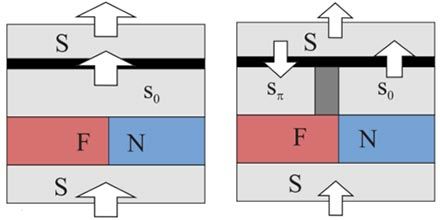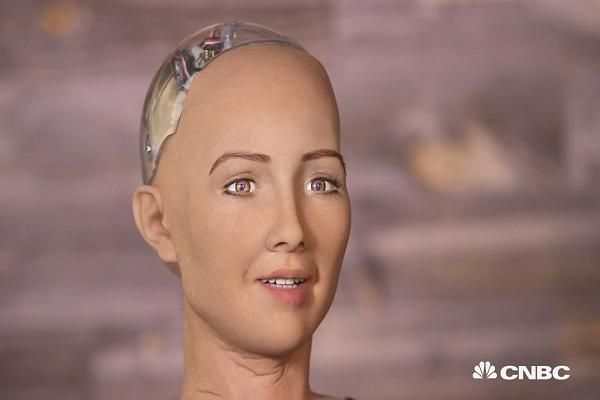Page 11342
Mar 17, 2016
This Amazing Computer Chip Is Made of Live Brain Cells
Posted by Karen Hurst in categories: neuroscience, supercomputing
A few years ago, researchers from Germany and Japan were able to simulate one percent of human brain activity for a single second. It took the processing power of one of the world’s most powerful supercomputers to make that happen.
Hands down, the human brain is by far the most powerful, energy efficient computer ever created.
So what if we could harness the power of the human brain by using actual brain cells to power the next generation of computers?
Continue reading “This Amazing Computer Chip Is Made of Live Brain Cells” »
Mar 17, 2016
New Physics Research Findings Reported from Hitachi (Quasi-Adiabatic Quantum Computing Treated with c-Numbers Using the Local-Field Response)
Posted by Karen Hurst in categories: computing, quantum physics
More insights on a more controlled Quantum.
By a News Reporter-Staff News Editor at Physics Week — New research on Physics Research is the subject of a report. According to news reporting from Tokyo, Japan, by VerticalNews editors, the research stated, “A computational method called the local-field response method is proposed, where spins evolve by responding to an effective field consisting of gradually decreasing external fields and spin-spin interactions, similarly to what is carried out in adiabatic quantum computing (AQC). This method is partly quantum-mechanical.”
Mar 17, 2016
Necrogenomics: Gathering DNA From the Dead to Improve the Lot of the Living
Posted by Karen Hurst in categories: biotech/medical, health
This one kind of gives me the heebie geebies.
DNA sequencing of the deceased could lead to a number of advances in health care. A group of scientists in Denmark have launched a proposal to create the world’s first national necrogenomic database.
The idea that dead men tell no tales is about to be seriously put to shame, should a newly suggested DNA registry in Denmark become reality.
Continue reading “Necrogenomics: Gathering DNA From the Dead to Improve the Lot of the Living” »
Mar 17, 2016
Rapid Superconducting Memory Cell Control System Developed
Posted by Karen Hurst in categories: computing, information science, materials, quantum physics
“With the operational function that we have proposed in these memory cells, there will be no need for time-consuming magnetization and demagnetization processes. This means that read and write operations will take only a few hundred picoseconds, depending on the materials and the geometry of the particular system, while conventional methods take hundreds or thousands of times longer than this,” said the study author Alexander Golubov, the head of Moscow Institute of Physics and Technology (MIPT)’s Laboratory of Quantum Topological Phenomena in Superconducting Systems.
Golubov and colleagues at Moscow State University have proposed creating basic memory cells based on quantum effects in superconductor “sandwiches.” Superconductors were predicted in the 1960s by the British physicist Brian Josephson. The electrons in these “sandwiches,” called “Josephson junctions,” are able to tunnel from one layer of a superconductor to another, passing through the dielectric like balls passing through a perforated wall.
Today, Josephson junctions are used both in quantum devices and conventional devices. For example, superconducting qubits are used to build the D-wave quantum system, which is capable of finding the minima of complex functions using the quantum annealing algorithm. There are also ultra-fast analogue-to-digital converters, devices to detect consecutive events, and other systems that do not require fast access to large amounts of memory. There have also been attempts to use the Josephson Effect to create ordinary processors. An experimental processor of this type was created in Japan in the late 1980s. In 2014, the research agency IAPRA resumed its attempts to create a prototype of a superconducting computer.
Continue reading “Rapid Superconducting Memory Cell Control System Developed” »
Mar 17, 2016
We should be more afraid of computers than we are – video
Posted by Scott Davis in categories: computing, food, information science, robotics/AI
Specifically, artificially intelligent computers…
As sophisticated algorithms can complete tasks we once thought impossible, computers are seeming to become a real threat to humanity. Whether they decide to pulp us into human meat paste, or simply make our work completely unnecessary, argues technology reporter Alex Hern, we should be afraid of computers.
Mar 17, 2016
Solar Panels Grown On The Moon Could Power The Earth
Posted by Gerard Bain in categories: satellites, solar power, sustainability
Mar 17, 2016
Grow Me a Liver: Mini-Version of Human Body Part Created in Japan
Posted by Dan Kummer in category: biotech/medical
A team of Yokohama City University biologists has successfully created a tiny liver that functions as efficiently as a human one, NHK reported on Thursday.
Mar 17, 2016
This hot robot says she wants to destroy humans
Posted by Dan Kummer in categories: futurism, robotics/AI
David Hanson’s best work yet.
They are getting really close to being passable for human. Now, it’s just a question of when they will stick a robot like ATLAS inside of something like this so it can walk around, talk, and look like a person. That will happen around 2020’ish..
Meet Sophia. Hanson Robotics human-like robot that may embody the androids of our future.
Mar 17, 2016
Laser Weapons Ready for Use Today, Lockheed Executives Say
Posted by Klaus Baldauf in category: military
If the Pentagon wanted them tomorrow, Lockheed is ready to provide laser weapons at the 30 KW level.

















